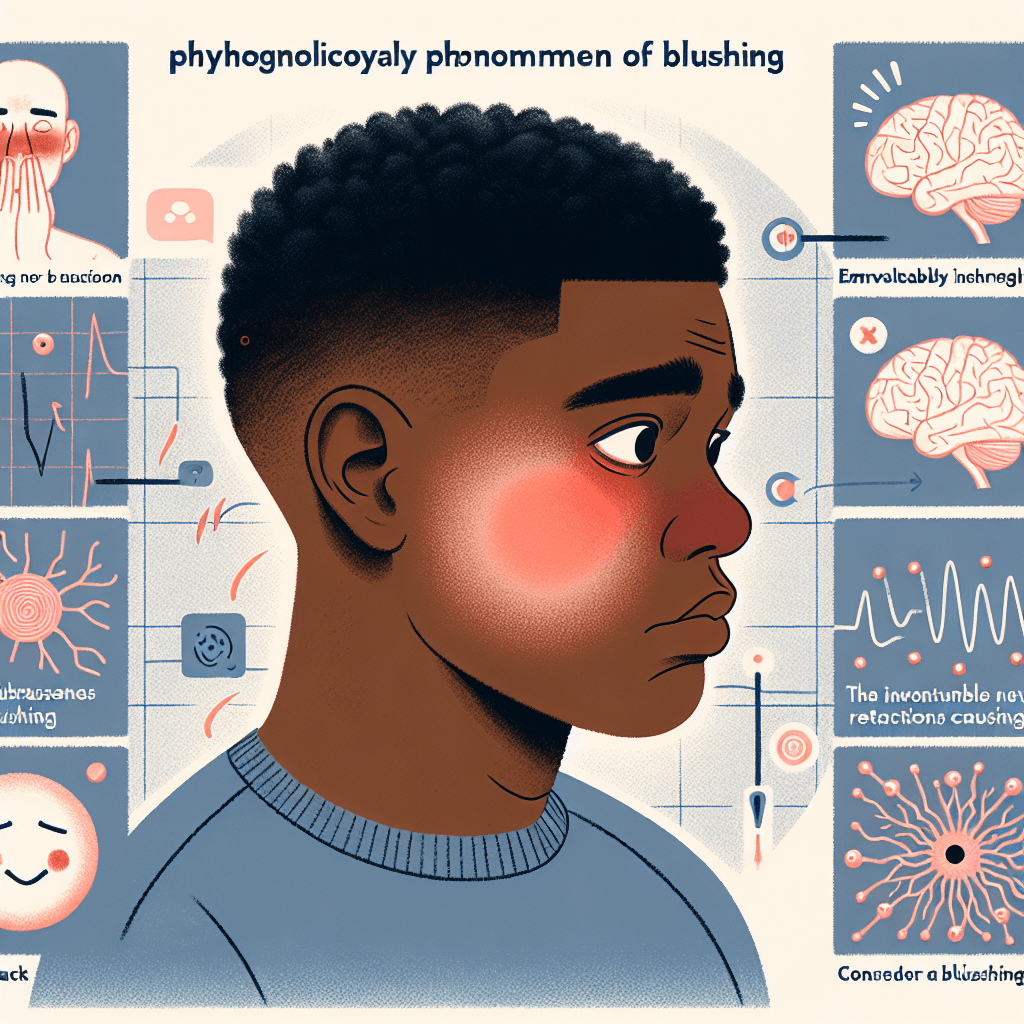Why do we involuntarily blush when we feel embarrassed
That uncontrollable crimson flush is more than just a sign of embarrassment; it’s an ancient, non-verbal apology hardwired into your biology to save you from social exile.


Too Long; Didn't Read
TLDR: Blushing is an involuntary fight-or-flight response to embarrassment. Adrenaline is released, causing blood vessels in your face to dilate and fill with more blood, making you appear red. It’s an honest, physical signal to others that you recognize a social misstep.
The Science of a Red Face: Why Do We Involuntarily Blush When We Feel Embarrassed?
Ever wished the ground would swallow you whole after tripping in public or saying the wrong thing in a meeting? As if the social discomfort weren't enough, our bodies often betray us with a tell-tale sign: a creeping, uncontrollable heat that floods our cheeks, turning them a bright shade of crimson. This involuntary reaction, known as blushing, is a uniquely human experience that can feel like a spotlight on our awkwardness. But why does our body react this way? Why can't we simply will it to stop? This post delves into the fascinating science behind the blush, exploring the physiological, psychological, and evolutionary reasons for this all-too-familiar phenomenon.
The Physiology of a Blush: What's Happening Under the Skin?
At its core, blushing is an involuntary physiological response triggered by your sympathetic nervous system—the same system responsible for your "fight or flight" response. When you perceive a social threat, such as being the center of unwanted attention or feeling ashamed, your brain sends a signal that you're in "danger."
Here's the step-by-step breakdown of what happens next:
- Adrenaline Rush: Your body releases the hormone adrenaline. This is the same chemical that prepares you to face a physical threat by increasing your heart rate and sharpening your senses.
- Blood Vessel Dilation: Adrenaline causes your blood vessels to widen (a process called vasodilation) to increase blood flow and oxygen delivery throughout your body.
- Facial Focus: While this happens everywhere, the veins in your face are particularly responsive. They are more numerous and sit closer to the surface of the skin than in most other parts of the body. When they dilate, the increased blood flow becomes highly visible, resulting in the characteristic red flush we call a blush.
Because this entire process is managed by the involuntary nervous system, you have no conscious control over it. It’s a physical reflex, much like pulling your hand away from a hot stove.
The Psychology of Embarrassment: Why This Specific Emotion?
Blushing isn't triggered by just any strong emotion. We don't typically blush when we're simply angry or scared in a non-social context. The key ingredient is self-consciousness. Embarrassment, shame, and even pride in response to a compliment can trigger a blush because they are all social emotions rooted in our awareness of how others perceive us.
The trigger is the fear of negative social evaluation. When you realize you've violated a social norm—whether by forgetting someone's name or spilling a drink on yourself—your brain interprets the potential judgment from others as a threat. This social threat is powerful enough to kickstart the same adrenaline-fueled response that a physical threat would, leading directly to that crimson glow.
The Evolutionary Advantage: A Surprising Social Signal
On the surface, blushing seems like a major flaw. It's an undeniable signal that we're flustered, drawing even more attention to our gaffe. So why would this trait have survived the pressures of evolution? Researchers believe blushing is not a flaw but a feature, serving as a powerful, non-verbal social tool.
According to research championed by evolutionary psychologists like Ray Crozier, blushing functions as a silent, honest apology. You can say you're sorry, but a blush is an authentic, unfakeable signal that you genuinely recognize your misstep and feel remorse. It shows others that you understand and care about the social rules you've just broken.
Studies have backed this up. Research from the University of Groningen found that people who blush after making a mistake are perceived as more trustworthy and are forgiven more quickly than those who don't. The blush acts as an appeasement signal, diffusing social tension and helping to repair social bonds. It’s your body's way of saying, “I know I messed up, and I value my place in this group.”
Conclusion
So, why do we involuntarily blush when we feel embarrassed? It's a complex interplay of physiology and psychology. An involuntary adrenaline rush causes blood vessels in your face to dilate in response to a perceived social threat. But far from being a simple bodily quirk, the blush is a sophisticated and honest social signal. It communicates remorse, appeases others, and helps rebuild trust after a social blunder. The next time you feel that familiar heat rise to your cheeks, take a small bit of comfort in knowing that your body isn't just betraying your embarrassment—it's actively working to smooth things over.


